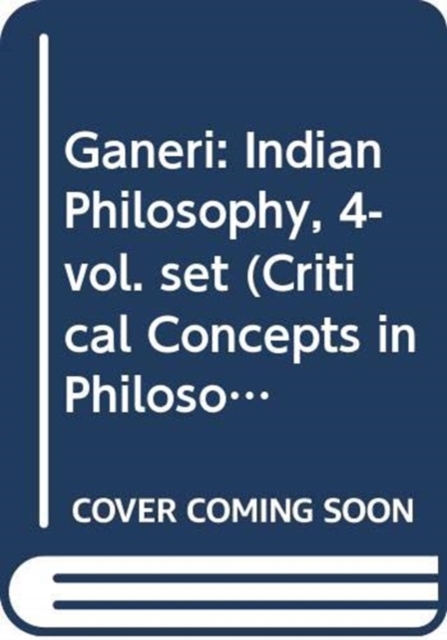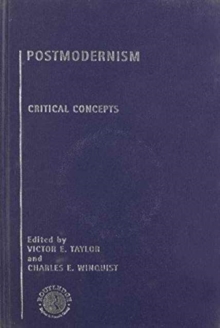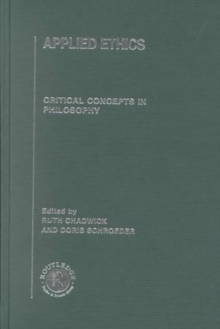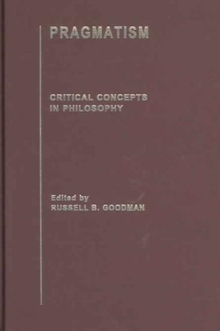
Ganeri: Indian Philosophy, 4-vol. set Multiple-component retail product
Edited by Jonardon Ganeri
Part of the Critical Concepts in Philosophy series
Multiple-component retail product
- Information
Description
The learned editor of this new four-volume collection from Routledge argues that its subject matter is ‘a vast—and vastly undersurveyed—body of inquiry into the most fundamental problems of philosophy.
As the broader discipline of philosophy continues to evolve into a genuinely international field, "Indian Philosophy" stands for an unquantifiably precious part of the human intellectual biosphere.
For those who are interested in the way in which culture influences structures of thought, for those who want to study alternative histories of ideas, and for those who are merely curious to know what some of the world’s greatest thinkers have thought about some of the most intractable and central philosophical puzzles, Indian Philosophy is a domain of unparalleled richness and importance. And in its potential for cross-fertilization with ideas from other philosophical cultures—Greek, Chinese, European, African, Arabic, and Anglophone—Indian Philosophy is a resource that any creative philosopher can and should draw upon.’The first of the four volumes (‘Philosophical Inquiry and the Aims of Life’) collects the best scholarship on how Indians have understood the purpose and importance of philosophy; what philosophy as a discipline consists of; the relationship between the study of philosophy and the aims, arts, and ways of life; and, indeed, whether philosophical inquiry is possible.
Volume II (‘Self, No Self’), meanwhile, surveys the great diversity of Indian thinking about the mind, with particular emphasis on the vibrant and dynamic work done by a new generation of scholars working at the interface between Buddhist Studies, Cognitive Science, Philosophy of Mind, and Phenomenology.
Volume III (‘Critical Indian Philosophers’) focuses on the thought of the most important individual thinkers in the Indian tradition, including: NÄgÄrjuna, Åšankara, DignÄga, DharmakÄ«rti, Patañjali, KumÄrila, and ÅšrÄ«hará¹£a.
The final volume in the collection (‘Being and Truth’) collates canonical and cutting-edge pieces on Indian theories of being and what there is; realism and antirealism; the nature of truth and representation; and language and logic.
The materials gathered here will enable users to get a grip on the remarkable range of Indian thinking about the structure of the world and its fundamental constitution, as well providing insight into fundamental Indian theories about how we reason and how we talk. With a comprehensive introduction, newly written by the editor, this ambitious collection of major works simultaneously presents Indian philosophy as an autonomous intellectual tradition, with its own internal dynamic and approach, while also demonstrating how the richness of this tradition can have a crucial role in a newly emerging global and international discipline of philosophy, a discipline described by the collection’s editor as one ‘in which no one philosophical tradition claims priority for itself, but rather in which a diversity of traditions exchange ideas and grow through their interaction with one another’.
Information
-
Available to Order - This title is available to order, with delivery expected within 2 weeks
- Format:Multiple-component retail product
- Pages:1658 pages, 15 Tables, black and white; 19 Illustrations, black and white
- Publisher:Taylor & Francis Ltd
- Publication Date:25/04/2016
- Category:
- ISBN:9780415712057
Information
-
Available to Order - This title is available to order, with delivery expected within 2 weeks
- Format:Multiple-component retail product
- Pages:1658 pages, 15 Tables, black and white; 19 Illustrations, black and white
- Publisher:Taylor & Francis Ltd
- Publication Date:25/04/2016
- Category:
- ISBN:9780415712057



